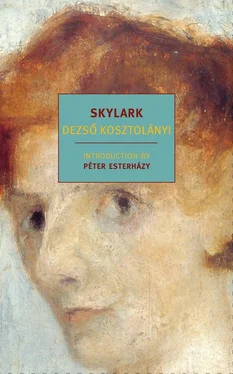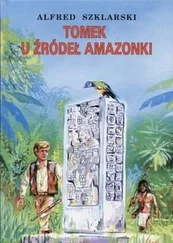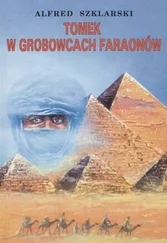In his younger days he had earned his living from the “verification of lawful lineage,” from filiatio and deductio , and although he no longer had any financial need of his vocation, he found himself unable to give it up. He could become as ensconced in a donatio regia as in some fascinating chess puzzle, and would dig through generations of ancestors and kinsmen, grandparents and great-grandparents, until he arrived at the most exciting of all, the primogenitor, the first forefather, the primus acquirens , whose ingenuity had established the fortune of a whole generation and whose heroic deeds reflected glory on all who descended from him. His head hummed with King's Wardens, Dames of the Star Cross Order and Knights of the Maltese Cross. He had nothing but admiration for those admissible at court.
When he had no other work, he'd turn to his own friends and acquaintances. He had once even wanted to verify the lawful lineage of Géza Cifra. For a while the genealogical tabella progressed quite smoothly. He even took it with him to the archives of the neighbouring county in order to gather more recent data. Then he suddenly got stuck. Neither he nor the records could uncover the exact identity of Géza Cifra's paternal grandfather. And so the family tree he had begun to sketch remained unfinished. Its frondose branches withered as if ravaged by a violent storm. Whenever Ákos came upon this sketch among his other papers, a scornful smile flitted across his face. Géza Cifra was just a common upstart, and not of noble descent at all.
But oh, the stories he could tell about his own ancestors, whom he seemed to know more intimately than the living. The Ádám Vajkays and the Sámuel Vajkays who had lived in the mountains and kidnapped young girls. Or the women, the Kláras and Katalins and Erzsébets, who had taken part in Maria Theresa's powderpuff balls. Or his wife's ancestors, the powerful Bozsós who had lived as wealthy aristocrats with splendid estates right up until the middle of the eighteenth century; or even about the odd isolated word once uttered by ancient kinsmen in the depths of bygone centuries and about the obscure golden lily which blossomed on the scarlet panel of their crest. Such ancient blood throbbed in their veins that they hadn't even possessed a noble patent, acquiring their rank through donated estates and laying claim to their coat of arms by right of ancient custom. This one escutcheon hung in a frame on his study wall, together with a family tree he had painted himself in fine, pale watercolours, after decades of fastidious research had led him all the way back to King Endre II. His own humble position and meagre means prevented him from applying for the title of royal and imperial chamberlain, a title upon which, according to his ancestry, he could none the less make every lawful claim. But this never disturbed him in the least. Not a man of outward vanity, he was interested in the principle alone, in itself sufficient to swell his secret self-esteem.
By the time he reached fifty, his work had been complete. He had traced the lineage of every last Vajkay and Bozsó, dead or alive. What remained to be done? Browsing over sheets of paper, onionskin and parchment, he would sit in his study for hours on a creaky couch draped with a Turkish rug, rapidly losing its colour in the stuffy, museumlike air. Here he'd ruminate about the future.
But all the future seemed to hold for certain was the prospect of his approaching death. Of this simple fact he would speak with all the callous indifference and alarming objectivity of an old man, often bringing his wife and daughter to the brink of tears. On the tomb of his long-departed parents he set a stone of dark-brown marble, engraved in gold lettering with the words: The Vajkay Family Vault. He took care of the grave, planted four box shrubs beside it and regularly watered the turf. He even painted the bench where he would sit and muse during his visits to the cemetery.
It was, he announced, his wish to be buried there when the time came, between his mother and father. He should be laid in state in the guest room, the hall should be draped in black and only two priests should perform the funeral. He kept his will in a sealed envelope locked in the bottom drawer of his writing desk, and informed his wife of where it might be found when the time arrived. The last years of his life he spent increasingly in preparation for his death.
The only time he'd betray any anxiety at all was when a member of his funeral society died. Then he'd hurry off to town with his funeral register — his “little book,” as he called it — to pay his society dues. Back at home he'd leaf once more through the register, checking that the fee had been duly entered, and with the yellowing, trembling fingers of a hand on which the hard, calciferous veins stood out blue and swollen, he'd point to the appropriate columns and figures, indicating to his family that all was in order.
Now, pacing along the asphalt, he no longer carried the white striped woollen blanket or water flask he had prepared for his daughter's journey. Yet he seemed to shoulder a far greater burden. His wife walked frailly beside him as if seeking refuge in the shadow of the walls.
School children scurried through the streets, returning from the First of September Book Fair. They had been to exchange their old school books for new ones and were now chattering and laughing about their teachers, especially the two strictest, Mályvády, the maths and physics master, and Szunyogh, the old drunkard. Classes had not yet begun. Today was the first day of term.
It took the elderly couple the best part of half an hour to trudge back to Petőfi Street where the asphalt came to an end and open ditches, overrun with weeds, gaped on either side of the road. Mihály Veres, their stalwart neighbour, sat out in the street, awl and paring knife in his hands. Veres was a cobbler, a struggling grey-haired craftsman who toiled slowly and moodily from dawn till dusk in his dank subterranean workshop, reached by three brick steps down from the pavement. The musty smell of size wafted out into the street and would even infiltrate the Vajkays’ house. The cobbler's horde of rowdy children ran riot in the broad and dirty yard between the pigsties and the empty sheds.
The Vajkay house stood opposite.
This spruce, whitewashed building now slumbered in silence. The five front windows stood shut, the cream lace of the drawn curtains draped over the window cushions which, even in the heat of summer, were never removed.
Ákos rummaged in his pocket for the string of keys he always carried with him and opened the black lattice gate. They passed inside.
He closed the living-room door behind him and carefully replaced the thick wall hanging that was draped, winter and summer, to keep out the draught, from two brass nails on the back of the door.
A hollow interior received them. It was only then they spoke.
“How will we bear it?” said the woman in the narrow hallway, tears already welling in her eyes.
“We'll manage,” Father replied.
“Friday, Saturday, Sunday,” the woman mumbled, as if telling her beads, “then Monday, Tuesday, Wednesday, Thursday—” here she paused to sigh—“then Friday. A week. A whole week, Father. Whatever will we do without her?'
Ákos made no reply. He never spoke much, but felt and thought all the more.
As the woman went on crying, however, he felt obliged to break his silence.
“Come on now, let's not cry. Today's Friday. Friday's tears are Sunday's laughter. And we'll laugh too, Mother, just you see,” he said without a trace of conviction, and disappeared into the dining room.
There stood the table in the bright afternoon sunlight, still covered with the greasy plates, glasses and crumbs left over from lunch. At any other time Skylark would have smartly swept the crumbs away with her little dustpan and brush. But even now, how considerate she had been. Before leaving she had straightened the chairs in the drawing room, made the beds, placed two glasses of water on her parents’ bedside table and set nightlight and matches on the old cabinet beside the gold carriage clock for them to light when it got dark.
Читать дальше












